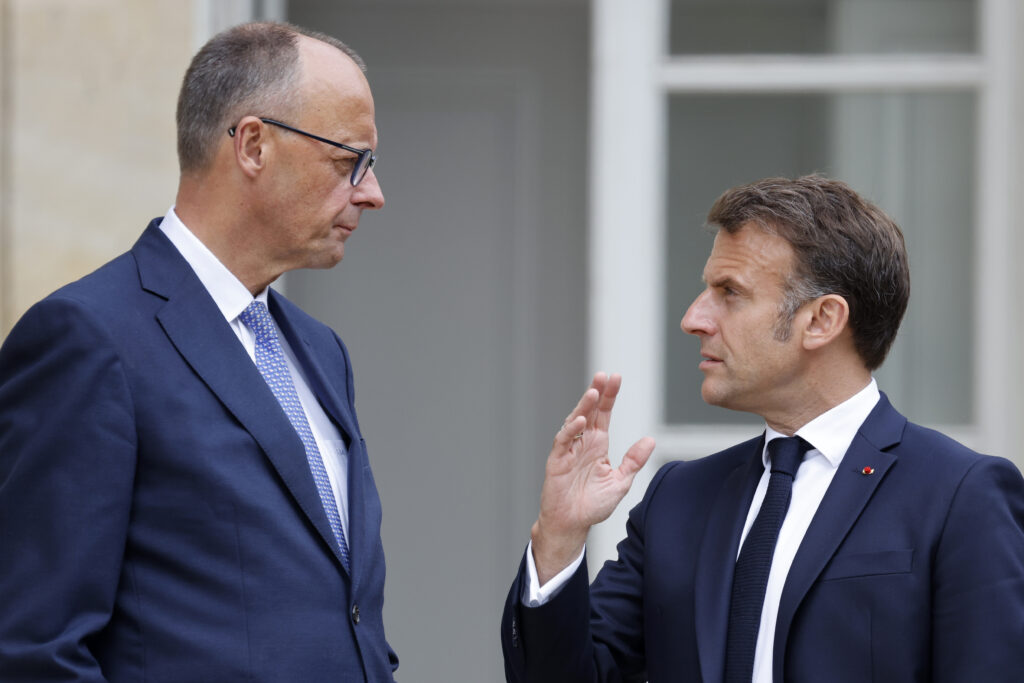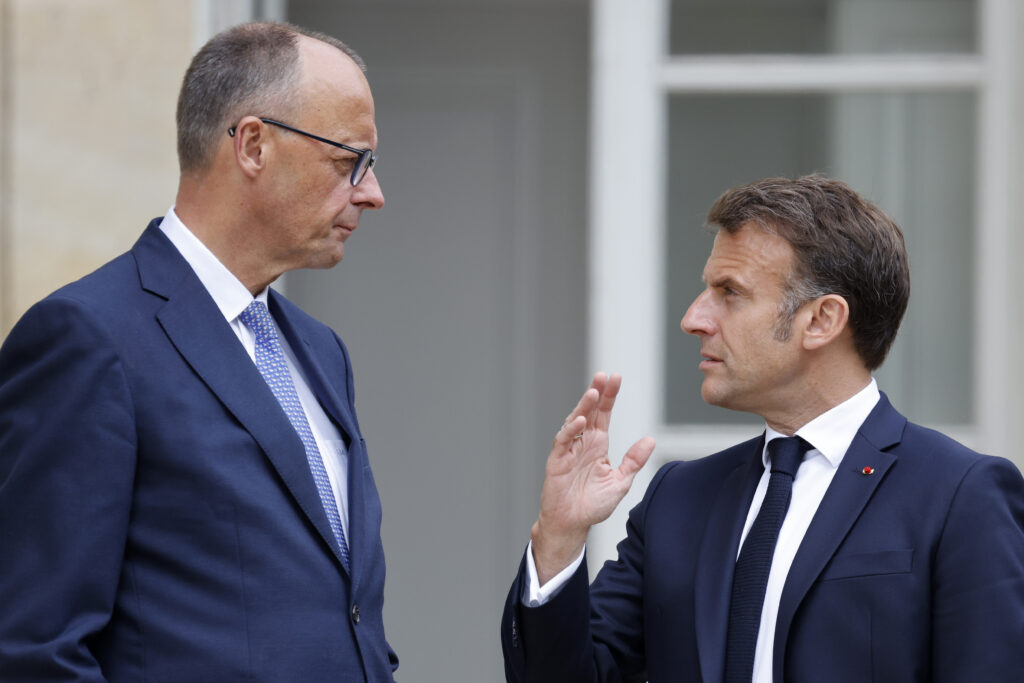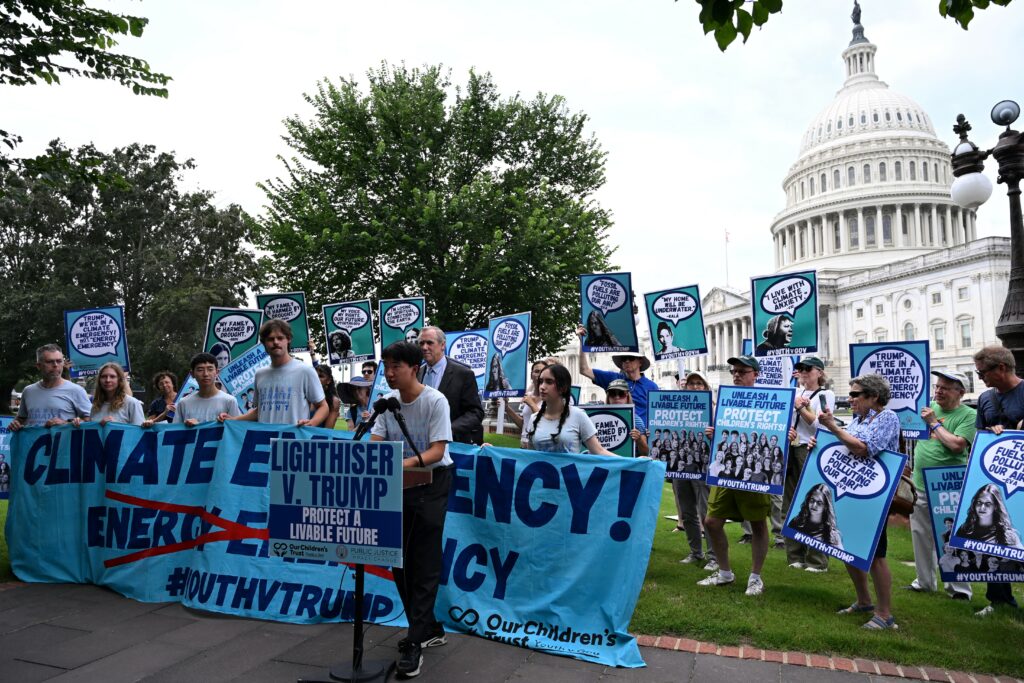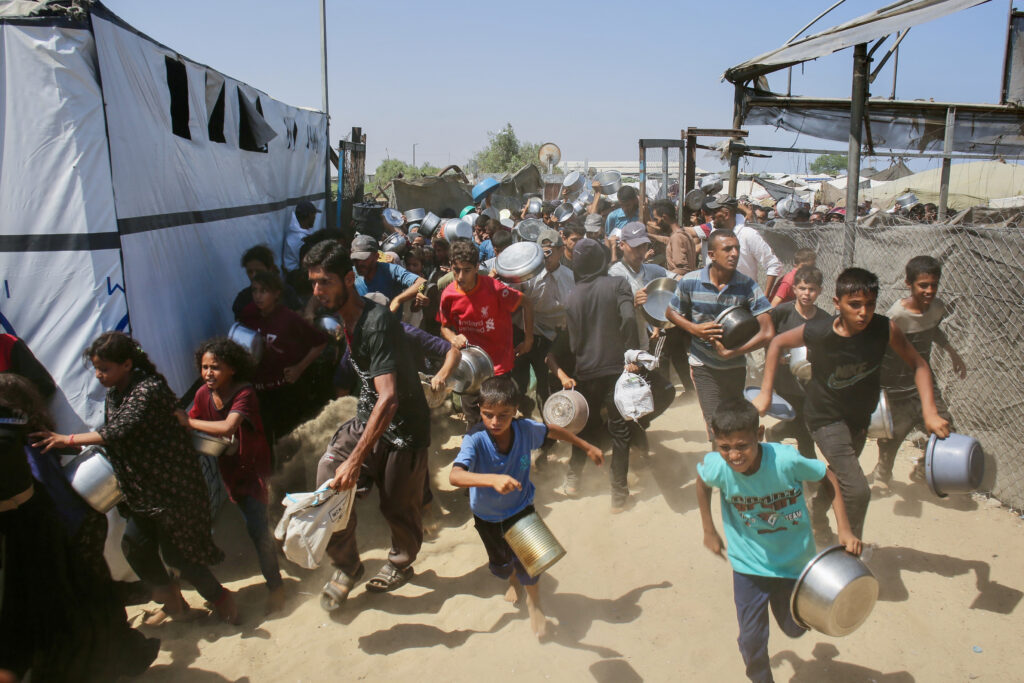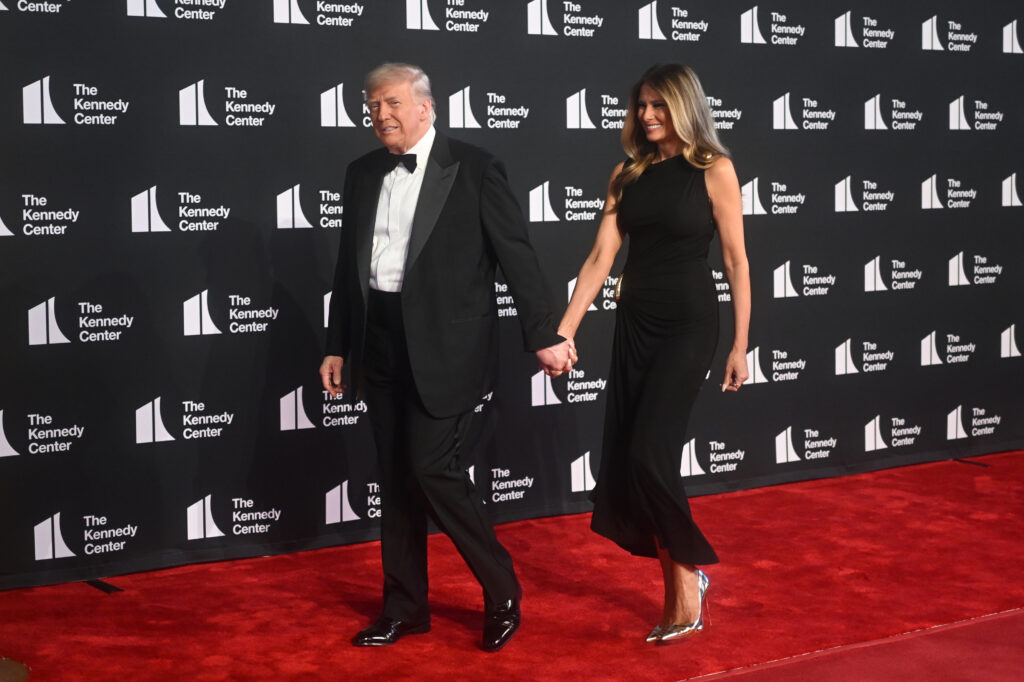Dîner entre Macron et Merz à Berlin, les droits de douane de Trump au menu
Face au compte-à-rebours pour les exportations européennes menacées de surtaxes américaines massives, les consultations s’accélèrent : Emmanuel Macron retrouve Friedrich Merz mercredi à Berlin pour un dîner de travail auquel s’inviteront également les questions de défense.La France et l’Allemagne ont beau rappeler que c’est la Commission européenne qui mène au nom des Vingt-sept les négociations commerciales avec le gouvernement de Donald Trump, le président français et le chancelier allemand entendent peser sur la stratégie de l’UE.Après des “échanges” sur le sujet le week-end dernier, les dirigeants des deux premières économies européennes en reparleront mercredi soir, un rendez-vous qui illustre, selon l’Elysée, “la relance de la relation franco-allemande” liée à l’arrivée du conservateur Friedrich Merz à la chancellerie.- Coopération renforcée -C’est le premier déplacement du chef de l’Etat français à Berlin depuis l’investiture de M. Merz, qui s’était quant à lui rendu à Paris début mai, dès le lendemain du jour où il avait pris ses fonctions.Cette rencontre, organisée dans le cadre bucolique d’une villa du nord de Berlin, doit permettre de finaliser les préparatifs du Conseil des ministres franco-allemand prévu pour fin août en France, une nouvelle démonstration de la coopération renforcée entre les deux pays.Ce dialogue bilatéral nourri n’a cependant pas effacé par miracle toutes les dissonances.Face à l’intransigeance de Washington qui menace l’UE de surtaxes douanières de 30% au 1er août, Paris prône “une position de fermeté” de la part de Bruxelles. Une posture réaffirmée par le ministre français de l’Industrie Marc Ferracci, allé lundi rencontrer son homologue allemande à Berlin.L’Allemagne a régulièrement plaidé pour une approche “pragmatique”, offrant des concessions pour sauver des secteurs-clés de son industrie exportatrice, dont les Etats-Unis sont le premier client.Pour autant, les gouvernements français et allemand disent soutenir les mesures de représailles préparées par la Commission en cas d’absence d’accord avec Washington.- Avion de combat et nucléaire -Paris et Berlin n’ont pas non plus aplani toutes leurs divergences sur la politique énergétique, un sujet qui les divise de longue date, même si des rapprochements sont esquissés.La France insiste particulièrement sur le concept de “neutralité technologique” pour que le nucléaire fasse l’objet d’un traitement similaire à celui des énergies renouvelables dans la législation européenne. Le classement du nucléaire en énergie “verte” au niveau de l’UE a été par le passé un point de désaccord majeur entre Français et Allemands.Sur ce sujet, le parti conservateur de Friedrich Merz, traditionnellement favorable à l’atome, doit composer avec les réserves de son allié social-démocrate dans la coalition au pouvoir.Et alors que Paris et Berlin veulent être les moteurs du réarmement de l’Europe, pour affronter le désengagement américain et la menace russe, le développement commun de l’avion de combat du futur (Scaf), un projet phare pour la défense du continent, patine.Le groupe aéronautique Dassault, qui représente la France dans ce projet, a clairement mis en doute son avenir et sa viabilité alors qu’il est encore loin de toute phase de prototype. Côté allemand, le projet est porté par Airbus via sa branche Defense and Space.Objet de difficultés récurrentes sur la répartition des tâches entre chaque pays, le Scaf a besoin d’un “vrai leader” industriel et non de “trois +co-co-co+” partenaires, a déclaré mardi Eric Trappier, le PDG de Dassault.Friedrich Merz insiste sur la nécessité de “respecter les accord conclus”, tout en se montrant optimiste sur la possibilité de rapidement éliminer les “divergences” avec la France. Les ministres de la Défense des deux pays se rencontreront en Allemagne jeudi.En difficulté sur le plan intérieur, où sa coalition est confrontée à ses premières turbulences, le chancelier allemand continue de vouloir renforcer le poids de l’Allemagne sur la scène internationale.Très critique d’une Union européenne freinée par ses règles et ses querelles internes, il mise sur le renforcement d’un axe avec Paris et Londres, où il s’est rendu en juillet – comme Emmanuel Macron – pour faire avancer des initiatives communes sur la sécurité ou l’immigration.
